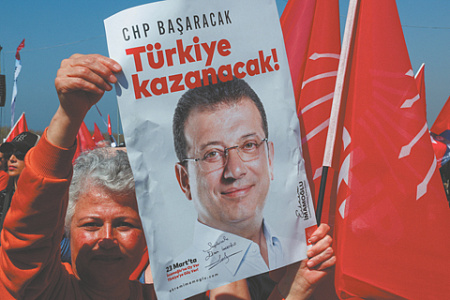
In a move that could reshape Turkey’s political future, Istanbul’s popular mayor, Ekrem İmamoğlu, is set to stand trial on July 16. A leading political rival to President Recep Tayyip Erdoğan, İmamoğlu faces charges of publicly threatening the city’s chief prosecutor. If convicted, he could be sentenced to up to seven years in prison and banned from political life, effectively removing a major contender from the national stage.
The case against İmamoğlu is widely seen by critics as part of a broader, systemic crackdown on dissent. Since last October, Turkish authorities have reportedly detained nearly 500 opposition figures on various charges, with over 220 either jailed or placed under house arrest. This legal pressure campaign intensified following İmamoğlu’s arrest in March, which triggered a wave of protests organized by his Republican People’s Party (CHP) in major cities like Istanbul, Ankara, and Izmir.
Analysts suggest these actions are a calculated strategy by President Erdoğan to consolidate power and clear the path for a potential future term. While the next general election is scheduled for 2028, and Erdoğan currently faces constitutional term limits, observers note he could pursue legal loopholes such as constitutional amendments or calling for early elections. In a sign of his political maneuvering, Erdoğan has even initiated a peace process with the Kurdistan Workers’ Party (PKK), a move that could help him build an unlikely alliance with the pro-Kurdish DEM party, further strengthening his position.
Despite the escalating political tensions, Turkey’s economy has shown surprising resilience. Foreign investors have recently adopted a more optimistic outlook, with the first week of July witnessing the largest influx of foreign capital into lira-denominated bonds in recent times. Nevertheless, the government remains wary of public sentiment, with officials reportedly debating whether to allow a live broadcast of İmamoğlu’s highly anticipated trial, signaling concerns over potential unrest.
However, the opposition’s ability to mount a genuine challenge appears limited. Political analyst Kerim Has suggests that the CHP, often dubbed the ‘party of a thousand factions,’ is too fragmented to effectively counter Erdoğan. The recent protests are viewed more as a controlled release of steam for party supporters than a serious threat to the ruling establishment. According to this view, the current opposition leadership, under Özgür Özel, avoids crossing Erdoğan’s ‘red lines’ and inadvertently helps the president by keeping the opposition divided and focused on internal power struggles rather than a unified bid for national leadership.
